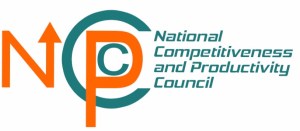
Saint Lucia is characterized by a youthful population. This means that thousands of young persons are entering the labour force yearly. As such, job opportunities for young persons are very limited and this has resulted in a youth unemployment rate of 38.4% in 2016. The answer to this crisis lies within entrepreneurship. Young persons are usually creative in their ways of thinking and solving problems. As such, this creativity can be used to create business opportunities for themselves as well as creating jobs for other young persons.
In order to start and operate a business, funding is essential. Securing financing, however, in this tough economic climate can be challenging due to the high risk levels involved in starting and operating a business. More importantly, entrepreneurs are required to have collateral in order to borrow. This, while proving to be problematic for potential young entrepreneurs should not be a deterrent.
Many successful business owners have started their business from scratch with little funding. For example, British business man- Chris Dawson has shown that selling goods from a suitcase can lead to big things, founding The Range (homeware) in 1988. His chain of discount stores made £88 million profit in 2014. Entrepreneurs are usually creative in nature and can come up with innovative ways of funding their ventures.
Young entrepreneurs will have great business ideas but because of lack of capital are discouraged to execute the plan. It is important to note that if the business idea is not comprehensive and well thought out, no amount of money will turn it into a success. Therefore, if an entrepreneur has a business idea but may have little money, that should not be a constraint to starting the business. This may require long days with little sleep. However, those who want it bad enough will make it happen.
The following are some tips on how to start your business with little funds:
Tell everyone about the business. Inform everyone that you know about your business including friends, family, business contacts and past colleagues. Call, send emails, attend free networking sessions also make the business known on social media. Friends and family can help you spread the word, and past colleagues can introduce your company to their professional contacts as well. This type of grass roots marketing can introduce your business to a much larger audience.
Get ready to work hard. When you are starting a business with little to no capital, you must be prepared to dedicate everything that you have into making the business a success. This involves cold calling, handling customer support, dealing with billing and accounting and other parts of the business. You may have to wear many hearts in order to start off the business.
Look for strategic investors. Strategic investors are the best type of investors you could find for your business because their interests align with your start up. In assisting your business, there is some benefit to their business. For example, a hair dresser with a huge salon may give a nail technician some space to set up, either at a concessionary rate or free of charge. This is a way of marketing the hair salon to the clients of the nail technician and thus helping to expand the business.
Start at home. Bill Gates successfully started his business in his garage. Depending on the line of business, a great way to save money is to run your business in a location that will not require you to pay extra rent. It will not look glamorous but will help you to get the job done without spending extra money. In recent years, the Taiwanese government has been encouraging entrepreneurs to start businesses at home. This is a way of helping them decrease on their overheard costs which ensures the survival of the start-up business.
Start part- time. If you will need a steady income to meet your financial obligations, it is therefore advisable to start the business as a part time venture. Do not quit the job until the part time business has a steady flow of customers and profits.
Although it is true that generous funding, a team of investors, or family with deep pockets can make starting a business venture easier, not having money should not be a deterrent. If you are confident that you have a product or service people want, don’t allow the lack of money to dissuade you from your business goals. By pivoting, grinding it out, getting creative, and differentiating yourself, you can bootstrap your way to a successful business.
 Business meetings are an important part of any organisations daily schedule. Whether liked or loathed, research shows that senior decision makers spend an estimated 65 percent of their time in mandatory meetings with different departmental heads. Such meetings are usually vital as they update attendees on work schedules and progress. However, as many of us know, even if not intentional, business meetings can eat away at crucial work hours.
Business meetings are an important part of any organisations daily schedule. Whether liked or loathed, research shows that senior decision makers spend an estimated 65 percent of their time in mandatory meetings with different departmental heads. Such meetings are usually vital as they update attendees on work schedules and progress. However, as many of us know, even if not intentional, business meetings can eat away at crucial work hours.
With the advent of the online meeting, many believed that unnecessary hours spent around a conference room table would be a thing of the past. Although some of the negatives related to ‘conventional’ meetings have been eradicated by way of the new technology, online meetings harbour other complications. For example, with participants of online meetings being in various locations, telecommunication and technological problems often arise. Connectivity issues and communication delays are two of the most common problems that occur. Also, it is sometimes hard to keep a meeting structured with multiple participants speaking at the same time. Thankfully however there are some practices that can help make online meetings more productive.
Online Meetings Need a Clear Agenda
Even ‘traditional’ meetings should have a clear agenda. A meeting with a vague purpose often leads to confusion and a lot of wasted time. So never hold an online meeting without one. Make things easier for everyone by preparing a formal agenda which details all of the key issues to be discussed in the meeting. Also clearly state the expected roles of each participant in the meeting. Send the agenda out at least 24 hours before the scheduled meeting start time, and seek acknowledgement of the agenda from each participant.
Appoint a Moderator
A meeting without a moderator is likely to go off-track. By appointing a moderator, you have given somebody the authority to control proceedings. No one can speak without the moderator’s permission. It will also be the moderator’s job to keep everyone focused on the topic. This is particularly important during an online meeting since the chance of miscommunication is greater due to Internet connectivity and audio/video quality.
Prepare Your System In Advance
Ask all the participants to restart their computers at least 20 minutes before the meeting gets underway. Also, make sure your camera and microphone are working fine, and your meeting software supports multiple participants. For one-on-one meetings, you can go for a standard video calling service like Skype. But if there are multiple participants, a specialized application like ClickMeeting, which gives you the ability to conduct online meetings much more professionally is recommended.
Limit Distractions
Distractions can easily cause miscommunication in online meetings. To avoid them, make sure all your participants are sitting in a closed and well-illuminated room with a clear background. Also, it’s better to use headphones and a collar mic instead of your laptop’s mic to ensure clear communication.
And In Conclusion…
Once your online meeting concludes, make sure a summary of all the meeting notes are sent to the participants. List the action points identified for each agenda item along with the name of the person responsible for its delivery. Ask all the participants to acknowledge the meeting notes and confirm their understanding.
Conducting online meetings with people in different locations can be difficult to manage, but advance preparation, good structure, and tight moderation can bring about a productive success. If done right, well-communicated, online meetings can become an extremely effective platform for connecting your company stakeholders and employees, whilst saving you telephone and other conventional communication costs.

The National Competitiveness and Productivity Council (NCPC) are pleased to announce the broadcast dates for their new television series ‘Productivity Matters’. The series, (which is funded by Compete Caribbean) gives insight into organisations and agencies within the private and public sectors, whose programs and initiatives focus on productivity and/or competitiveness.
The series which comprises of six episodes, made its debut in January 2016.
Marketing Analyst at the NCPC, Mrs Geraldine Bicette Joseph states, ‘There are many organisations out there that are doing great things in regards to helping develop the nation through productivity initiatives and we believe that it is only right for their efforts to be highlighted. Each episode within the series varies significantly from the other as we have looked at a range of individuals and subject matters including the construction industry, solid waste management, the public service, the Commercial Division of the High Court and young entrepreneurs’.
‘At the NCPC we also recognise that it is sometimes hard to grasp the concepts of productivity and competitiveness and so we hope that the series will illustrate how these concepts, when applied practically, bring about a positive outcome for the nation’.
Productivity Matters will be aired at the following times on the stations listed.
Ep 1- Productivity Awareness Week 2015 (Calabash- 7.50pm, DBS – 8pm, 11/1/16) (HTS 8pm 14/1/16)
Ep 2 – Employee Assistance Program (Calabash- 7.50pm, DBS – 8pm, 25/1/16) (HTS 8pm 28/1/16)
Ep 3 – Commercial Court (Calabash- 7.50pm, DBS – 8pm, 8/2/16) (HTS 8pm 11/2/16)
Ep 4 – Greening the Caribbean (Calabash- 7.50pm, DBS – 8pm, 22/2/16) (HTS 8pm 25/2/16)
Ep 5 – The Construction Industry (Calabash- 7.50pm, DBS – 8pm, 7/3/16) (HTS 8pm 10/3/16)
Ep 6 – Young Entrepreneurs (Calabash- 7.50pm, DBS – 8pm, 21/3/16) (HTS 8pm 24/3/16)
 I have never received two turtle doves or a partridge in a pear tree as holiday gifts, but I’ve always liked the idea of the 12 Days of Christmas. With this in mind here is a rundown of twelve ways to give yourself the gift of a happier, more productive you.
I have never received two turtle doves or a partridge in a pear tree as holiday gifts, but I’ve always liked the idea of the 12 Days of Christmas. With this in mind here is a rundown of twelve ways to give yourself the gift of a happier, more productive you.
On the first day of Christmas: Track your time. Lots of people tell me they’d like to keep a time log, but find the prospect daunting. So instead of a week, try it for just one day. Chances are this won’t be a typical day — especially if you start this project on December 25! — but it doesn’t matter. There are no typical days. Embrace the activity and see where the time goes. See if your log matches up with how you’d like to be spending your time. See what you like best about your life, and what you might want to do differently.
On the second day of Christmas: Work on your List of 100 Dreams. Make a good long list of anything you’d like to do or have more of in your life. If you’ve already created such a list in the past, great, but your priorities and interests may have changed. Do some editing. See what you might want to attempt in the New Year.
On the third day of Christmas: Cancel things you don’t want to do. Wouldn’t it be nice to start the year with only a little of your time spoken for? See if you can keep recurring meetings from following you into January. Wipe Outlook clean and decide what you want to add back into your life.
On the fourth day of Christmas: Build in a fun “obligation.” Human nature dictates that we’re more likely to do things that happen at certain times and involve commitments to other people. That’s why recurring meetings rise on our priority lists beyond their actual importance. The good news is that you can tweak this phenomenon in your favour. Schedule in something you want to do for early 2016.
On the fifth day of Christmas: Finish one project. Crossing a nagging task off of your to-do list will make you feel like you can conquer the world.
On the sixth day of Christmas: Change your food environment. Put fruit in a bowl on the counter, and move chips and candy to a hidden high shelf. Choose one simple habit to implement, such as “I always eat vegetables with lunch.” Over time, these choices add up.
On the seventh day of Christmas: Get a step counter. Most New Year’s resolutions to exercise have faded by February. But what gets measured gets done. A step counter can nudge you to walk the office halls during a break or walk the dog a little farther than you otherwise might. Given that most people won’t spend an hour a day at the gym, this is the next best thing.
On the eighth day of Christmas: Find a reason to get out of bed. Anticipation makes us into morning people. What would make your morning so exciting that you’d be happy to ditch the covers? Design a morning routine that gives yourself the gift of 30 minutes a day focused on something you want to do, rather than your obligations to the rest of the world. Just be sure to give yourself a bedtime that makes this routine feasible.
On the ninth day of Christmas: Lighten your load. Choose one household chore you really dislike and figure out how to get it off of your plate.
On the tenth day of Christmas: Back it up. Don’t let anything that matters to you exist in only one precarious place. Take digital photos of old, printed photos that could be wiped from existence in a flood. Then back up your favourite photos from your phone before you accidentally leave your phone somewhere. Hopefully you’ll never need these back-ups, but if you do, you’ll be glad you have them.
On the eleventh day of Christmas: Boost your wealth. If you just got a raise, use this day to think about ways of increasing your savings. Find any recurring expenses for things that no longer matter to you and use the day to cancel them and redirect the cash toward your growing pile.
On the twelfth day of Christmas: Say what you feel. It’s easy to be mindless, but expressing gratitude to those around you can remind you that life is a gift.
 The National Competitiveness & Productivity Council continues its efforts in creating a mind-set change that promotes a more productive and competitive Saint Lucia. As such, as part of Productivity Awareness Week 2015 a Young Entrepreneurs’ Mixer was organised to present young and prospective entrepreneurs with an opportunity to network. The focus of this activity was for these young persons to make connections and obtain useful information to guide and advance their business efforts.
The National Competitiveness & Productivity Council continues its efforts in creating a mind-set change that promotes a more productive and competitive Saint Lucia. As such, as part of Productivity Awareness Week 2015 a Young Entrepreneurs’ Mixer was organised to present young and prospective entrepreneurs with an opportunity to network. The focus of this activity was for these young persons to make connections and obtain useful information to guide and advance their business efforts.
This event took place on Friday, October 16, 2015 where there were various short speeches on financial management tips, marketing for small businesses and developing business plans. The featured speech was entitled: “How to grow your money- the non-conventional approach”. In attendance were over fifty young and aspiring entrepreneurs. There was also a mingling session, where entrepreneurs got an opportunity to meet with mentors and other possible business partners.
One of the entrepreneurs in attendance was Mr. Johanan Dujon, who provided his feedback on the activity:
The NCPC Business Mixer gave me the chance to rub shoulders with the “big boys” of the private sector in Saint Lucia, as well as to listen to gems of wisdom by bankers and marketing advisors. Events such as these provide a unique opportunity for young entrepreneurs like myself, to network and build lasting relationships. Unlike other mixers I’ve attended, this one allowed entrepreneurs to pick the brains of successful businessmen at length in a casual and open environment. This type of mentorship and dialogue with the local business magnates is one of the key factors in developing entrepreneurship.
Another key factor in driving entrepreneurship is access to finance from a government policy standpoint. Commercial banks do not cater for venture capital (start-up capital) understandably due to the high risk. The micro finance institutions charge more exorbitant rates of interest than the banks themselves, which can be discouraging to aspiring entrepreneurs and put micro/small business owners in a real conundrum.
In spite of these pressing issues, listening to Mr. Rayneau Gajadhar address us on how to “grow money the unconventional way”, has provided valuable insight to what it takes to succeed in business. One of the many things I took from this lecture is that if you can survive here, you can survive anywhere.
I believe the turnout of this event shows that young entrepreneurs have a serious interest in business and understand their pivotal role of being the drivers of employment and investment in the future.
However, to grow money the unconventional way, we must first have access to the money in the first place. The question therefore should be; what can be done to aid micro/small enterprises with access to finance at an affordable rate?
The NCPC is indeed pleased that the event was quite beneficial to the attendees. The mentors who were present have reported that they have made connections with the entrepreneurs and plan to work with them in the future. We look forward to hosting other activities for young entrepreneurs in the future. More importantly, to host activities that meets the needs of young entrepreneurs.
